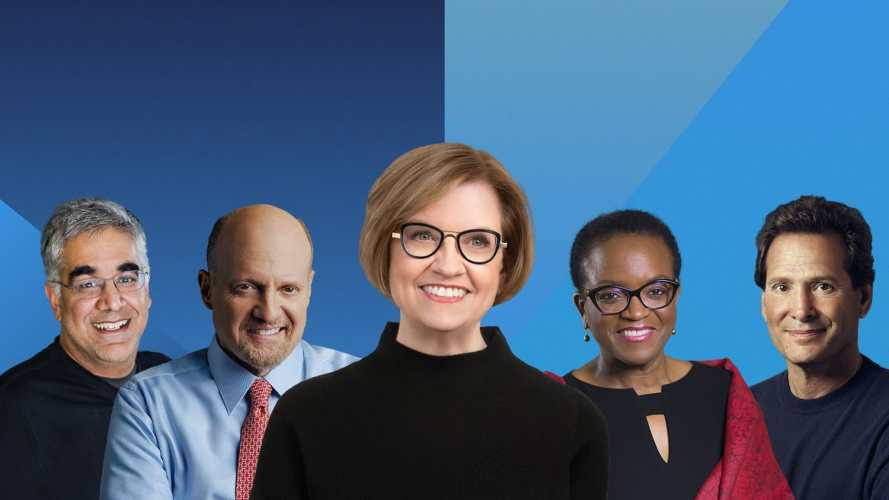10 Leaders On The Moments That Changed Their Lives Forever



Join Salesforce EVP Global Strategic Affairs Monica Langley as she interviews business leaders for her new show, The Inflection Point.
CEOs are often regarded as powerful and out of reach, and it’s easy to understand why. But in my career reporting for The Wall Street Journal, working in tech, and practicing law, I’ve had more meetings and interviews with CEOs than I can count. And I’ve always found them to be people like the rest of us — with their own strengths and weaknesses, their own challenges, and their own very human stories.
That’s why we decided to launch a new series called, “The Inflection Point.” (Watch highlights from the first season of “The Inflection Point” below.)
I want to bring you the moments when everything changed for these individuals, either personally or professionally. It’s in those moments their character is revealed — and without, they might not be where or who they are today.
Take Honeywell’s Darius Adamczyk, whose family moved from Poland to Michigan when he was a child. Other kids belittled him and those moments prepared him for how isolating life can be at the head of a company.
“At the end of the day, you own the decisions as CEO and it can be a very lonely place,” Adamczyk told me. “You have to be both confident and humble at the same time. You have to be confident enough to make the decisions that lead the company in the right direction, but humble enough to listen to others and admit mistakes. Every CEO makes mistakes. Great ones admit them and adjust direction.”
That sense of leadership is needed now more than ever, Swarthmore College President Valerie Smith told me.
“During this moment and certainly in recent years, we have seen the convergence of multiple crises and one has been a crisis of leadership,” she said. “I have found that as president of an esteemed institution of higher learning, people in our community and beyond have turned to Swarthmore and schools like it for leadership — for a voice of what it means to live and work and serve in an ethical and principled way.”
Smith, who grew up in New York City to parents who had attended racially segregated schools in Jim Crow-era South Carolina, saw education as a powerful way to change the world. All thanks to her own inflection point, a principal at her elementary school instilled in her a sense of confidence in her own abilities.
We all have these pivotal moments, myself included.
In the 27 years I spent as a reporter for The Wall Street Journal, it turned out it was news of my own that I struggled with the most. In 2009, I was diagnosed with stage 3C breast cancer. But did I stop and focus on my health? No, work came first, as it always had. Until one day my doctor finally impressed upon me the need to prioritize my life, not my job.
“You have a new job now,” my oncologist told me. “This is your life we’re trying to save.”
I had a 50% chance to live five more years, the doctor said. A 50% chance to see my daughter turn 16, develop her love of science, learn to drive, go to a prom.
That moment, sitting in my doctor’s office at Memorial Sloan Kettering Cancer Center, wondering if I’d ever see my daughter grow up. The daughter I had tried so hard to have after numerous IVFs. That was my inflection point.
From that moment my life split into two parts: a before and an after.
That’s why I wanted to hear directly from these CEOs and learn how their own inflection points changed their lives. Because without these moments, they might not be where or who they are today.
I know I wouldn’t.
Watch the first episode of “The Inflection Point” with PayPal CEO Dan Schulman:
Tune in to future episodes of The Inflection Point. In addition to Honeywell’s Darius Adamczyk and Swarthmore College’s Valerie Smith, other guests include CNBC’s Jim Cramer, The Cleveland Browns’ Dee and Jimmy Haslam, Coca-Cola’s James Quincey, Snowflake’s Frank Slootman, and Ford’s Jim Farley.



























